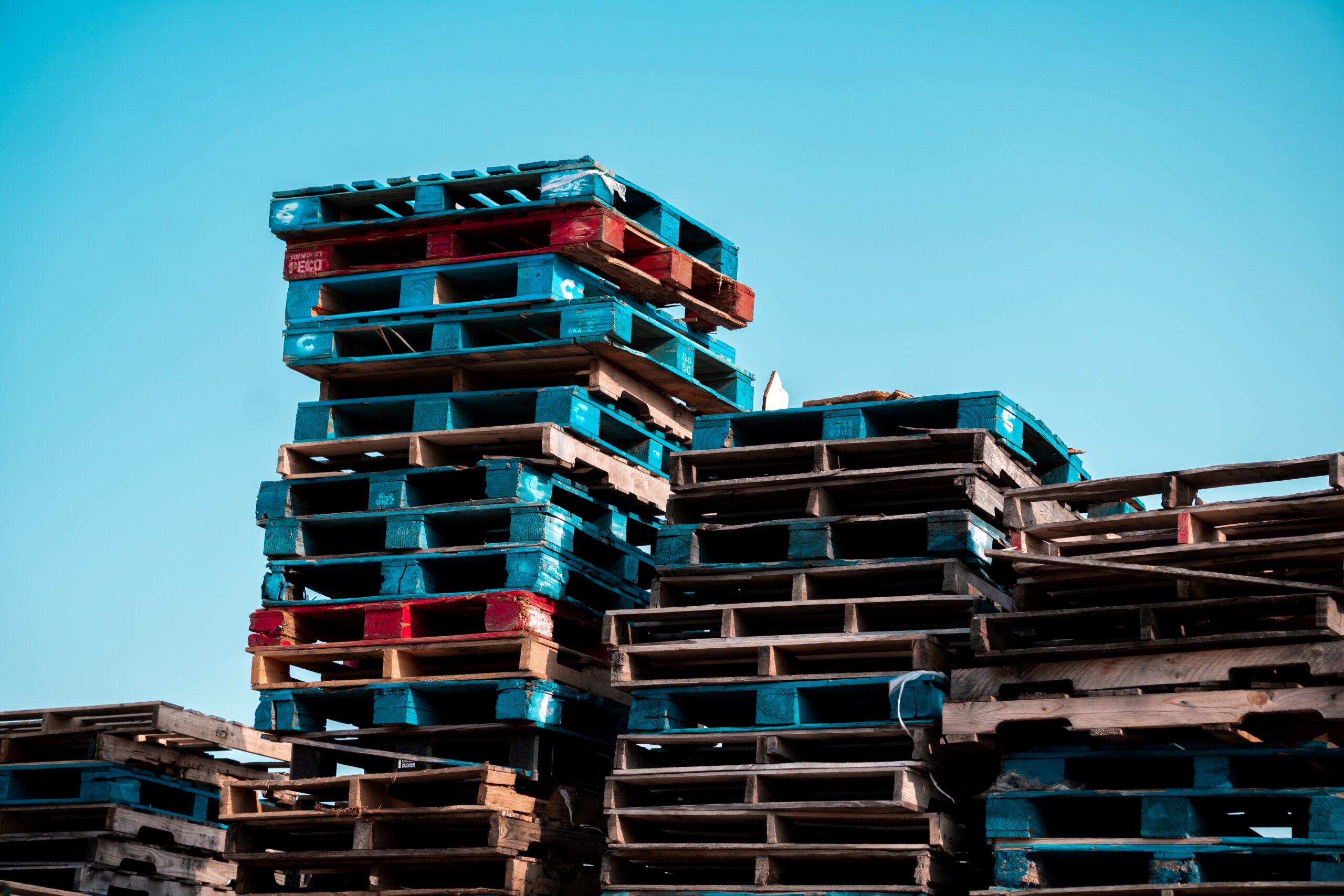
Wood Waste Recycling
Recycling wood is an environmentally friendly, cost-effective, and responsible solution for businesses that produce all types of wood waste. From wood packaging to timber and wood scrap, whatever industry your business operates in and wherever it’s located, you may find yourself in need of wood disposal. Arrange wood waste collection today with Business Waste.
Wood is a renewable resource used in different ways across many businesses – from furniture in your office to pallets when transporting goods. Recycling waste wood extends its lifespan and avoids unnecessary materials going to landfill. Call 0800 211 8390 or contact us online today for a free quote for wood waste recycling and collection anywhere in the UK.
Get a free wood collection quote
Get a fast FREE quote for wood waste collection
- Free quote within 1 hr
- Any type of waste wood
- FREE bins and delivery
- We cover all of the UK
Wood waste collection
Arrange waste wood collection with Business Waste to make getting rid of your scrap timber, packaging, offcuts, and any other wood refuse a breeze. Recycling waste wood with our collection services ensures it’s recycled or reused in as environmentally friendly a way as possible. This avoids it going to landfill and you having to pay more tax.
Enjoy free wood waste skips delivered to your business – you just pay for the collection. Fill them up with whatever bits of wood you no longer need, whether it’s scrap timber, pallets, plywood, or anything else. We’ll collect it from an agreed accessible location on your premises and transport to a nearby wood recycling centre for sorting, treatment, and recycling.
Arrange wood collection on a schedule that suits you. Set up just a one-off collection of wood waste or organise more regular daily, weekly, or fortnightly removals. There’s a solution to suit your company however much waste wood you produce, from construction sites that need regular wood collection to shops that only require occasional pickups.
Call 0800 211 8390 or contact us online for a free quote for wood collection from your business, wherever you’re based in the UK and whatever your industry. One of our friendly team can answer any questions about wood disposal, recycling, and collection you may have to ensure all your needs are met.
Wood waste
skips
Depending on the type of waste wood your business produces, how much, and how often you need wood collection affects the wood waste skip best for your operations. These range from skips that are ideal for wood pallet recycling, to large roll-on roll-offs best for high volumes of wood recycling.
Discover some common wood waste skip for businesses of all shapes and sizes.
Commercial wood recycling
Wood recycling saves your business money by diverting waste away from landfill. It also helps protect the planet by reusing such materials, which saves on the energy required to create fresh wood products. Recycling makes sense for any type of waste wood as wood is one of the most sustainable and renewable materials.
Simplify wood recycling for your organisation by separating your waste with the skips, rear-, and front-end loaders we provide. There are solutions to safely store any waste wood you produce before its collection and removal to a wood recycling centre. Here your wood is recycled to create new wood products, animal bedding, garden mulch, and more.
Who needs
wood recycling?
Most wood waste comes from urban areas where there’s massive construction, demolition, wood processing and wood packaging activities. The main industries contributing to the creation of wood waste include furniture, sawmill, pulp and paper, plywood mills, and particleboard mills. However, even industries such as retail that receive deliveries on wooden pallets need wood disposal too.
Some of the main industries that may require wood recycling include:
- Agricultural – tree stumps, waste wood from logging and animal bedding
- Construction – scrap wood and timber from construction sites
- Factory – sawdust, offcuts, and leftover wood pieces from manufacturing
- Retail – pallets and wood packaging to store and deliver goods
- Schools – broken and used furniture, packaging, and natural wood waste
How does wood
waste collection work?
-
Select your free bins
It’s quick and easy to organise commercial waste collection for your business.
Simply start by telling us the:
- Type of waste you need removing
- Size of bins you require
- Number of bins you want
We’ll provide you with a free quote.
-
Arrange delivery
When you’re happy with the type, number, and size of free bins, tell us when you need your bins delivering.
Let us know about any access issues where you want the bins delivering – such as locked gates, access codes and times. We’ll get you up and running in no time.
-
Fill up your bin
After the free bins arrive at your chosen location, fill them up with the agreed waste type.
Make sure you remain within any weight limits for the specific waste type and bin size.
-
Get your business waste collected
We’ll arrange waste collection at a time and frequency to suit you and the amount of waste you have.
As featured in…
What is
wood waste?
Wood waste is any used timber or associated residues – such as offcuts, sawdust, and shavings. It’s the final unwanted product from activities like lumberjacking and branch pruning, including discarded trees and uprooted or non-uprooted tree stumps. Waste wood also covers used packaging and products made entirely from wood, such as pallets and boxes.
There are four different types of wood waste:
- Problem wood waste – unwanted laminated timber, wood waste with preservative agents, and a blend of problem wood waste with regular wood.
- Used wood waste – deserted wooden building portions, wooden furniture, and wood waste from materials like colour pallets.
- Scrap wood waste – produced in workshops by carpenters, furniture factories, construction sites, and sawmills.
- Natural wood waste – leftover sawdust and remaining wood pieces from logging activities.

How is
wood recycled?
After waste wood collection from your business, it’s taken to a local wood recycling centre. Here everything in your waste wood skips is emptied and sorted by wood grade to be reused and recycled by individual type. The different wood grades are usually:
- Grade A – clean hard and softwood mainly used for packaging, like pallets and offcuts.
- Grade B – mixed wood, usually from construction, demolition, and furniture.
- Grade C – grade B waste wood but including chipboard, MDF, plywood, and fibreboard.
Any waste wood that falls outside of these grades or contains contaminants such as hazardous materials, may go to landfill or be incinerated. Wood that’s recyclable goes into a chipping machine for shredding, before the chipped wood is then screened. Depending on the type of wood, it may then be used in a few different ways. These can include:
- Biomass wood fuel – for use in wood fuel boilers to ensure they work efficiently
- Animal bedding – often for horses but also domestic pets such as hamsters
- Surfacing – commonly used for pathways and landscape cover for gardens
- Garden mulch – to save water, protect plants from weeds and enrich soil
- Raw material – sometimes it’s reused to create plywood, fencing, and more
How to dispose
of wood
Depending on the type of business you run and kind of wood waste you produce, this can affect how and where you store it before arranging disposal. There are a few different ways to store waste wood:
- Localised containers – these ‘desk-side bins’ are individual refuse bins for increasing the efficiency in properly handling wood waste. They’re placed near a workstation in a workshop for example, a close point to throw away small bits of wood scraps.
- Centralised bin stations – high traffic containers in strategic points, where the waste from localised containers goes. Most furniture workshops have these bins in their hallways and corridors to store waste wood from employees’ workstations.
- Waste transfer carts – utility carts receive refuse from centralised stations and move or cut them if it’s a transfer baler. They’re big containers that carry more wood waste and are economical compared to buying numerous high traffic containers.
- Refuse yard dumpster – the last designated point that stores large amounts of waste wood. They’re large and receive tonnes of wood waste from transfer balers.
To start recycling wood, your business needs the right size and type of bins, skips, balers, or other containers for storage. Arrange this with Business Waste and we’ll deliver the appropriate skips for your wood waste. Then you simply fill them with your waste and agree a collection time and location.
Try to make sure your waste wood is free from contaminants where possible, as bits of metal can interfere with machinery at the recycling plant. However, there’s no need to break down or separate wood by type. After collection it’s transported to a nearby wood recycling centre where everything’s sorted and processed.
Various UK laws must be followed when recycling wood. The Environmental Protection Act 1990 puts in place measures to control the collection, disposal, and treatment of waste types – including wood waste – while the Hazardous Waste Directive forbids mixing hazardous and non-dangerous waste.
A Waste Transfer Note should accompany all movement of hazardous consignments of waste wood too. This contains legal documents with signatures of both parties sending and receiving the waste wood.
MDF recycling
MDF recycling is possible, but it follows a different process from other types of waste wood. This is because MDF (medium-density fibreboard) contains a mixture of recycled products with hardwood or softwood, formaldehyde and paraffin wax. Recycling MDF involves separating the different materials for recovery and reuse, which is more complex than other types of wood recycling.
Businesses can arrange collection of old MDF with the rest of their wood waste, as it will be sorted, separated, and recycled away from other types of wood waste. Households should check if their local household waste recycling centre accepts old MDF for recycling. Many will have a separate bin for MDF away from general wood recycling.
The process for MDF recycling is:
- The MDF boards or products are shredded.
- These chips of MDF are then soaked in a liquid medium for a long time.
- It’s then heated to around 90°C, which hydrolyses the bonding resin to free the wood fibres for recovery and re-use.
Wood waste
facts
In the UK we produce around 4.5 million tonnes of wood waste every year. Despite the UK being home to just 1% of the global population, it consumes 3% of the world’s wood. Globally about 15% of waste wood is recycled, although plenty more is recovered and reused in other ways.
The good news in the UK is that at least 133,000 tonnes of waste wood is recycled annually, while almost 250,000 gets turned into biomass. However, there’s still progress to be made as most waste wood is recyclable or reusable in one way, so hardly any should end up in landfill.
Things are moving in the right direction according to the Wood Recyclers Association. It claims there’s been a rise in the amount of waste wood recycled or reprocessed in the UK. The Wood Recyclers Association puts this down to an increase in landfill tax and a government drive to increase recycling.

Read our reviews
James was very helpful and to be honest since starting with this company the service has been excellent.Christeen Norfolk
Wood recycling
FAQs
-
Can you recycle wood?
Yes, wood is recyclable. You can’t put wood or wooden items in your household recycling bin, but recycling waste wood is possible at recycling centres or with licensed wood collection. Wood is recycled based on its different grades and often shredded into chips. These are then used for various purposes, from animal bedding to create new building materials.
-
Is plywood recyclable?
Yes, plywood classes as grade C, so it can be recycled alongside other types of similar wood. As plywood is made from a mix of woods and treated, it must be separated at a recycling centre and only recycled with other grade C woods. It’s recycled in the same way as other wood types, usually by shredding into wood chips for various uses.
-
How do you get rid of wood pallets?
Wood pallet recycling is the best way to get rid of your used or broken pallets. If they’re still intact though, you can reuse or donate them to another business that can use them. Otherwise, wood pallet recycling offers a sustainable and cost-effective way to get rid of unwanted packaging.
Arrange collection of your old wood pallets by an authorised carrier, such as with Business Waste. We’ll pick up your old pallets and transport them to a wood recycling centre. Here they’re sorted and recycled – either shredded into wood chips or turned into mulch.
-
Can you recycle MDF?
You can recycle MDF alongside other types of wood waste. Medium Density Fibreboard (MDF) is made from thin veneers of hard or softwood that are glued together. This mixture of materials could make it complex to recycle, but much like plywood it also classes as grade C. When it reaches a wood recycling centre, MDF will be sorted and recycled alongside other grade C woods.
-
How do you store wood offcuts?
How you store wood offcuts depends on what you intend to do with them. If you’re storing waste wood for recycling or disposal, then having a bin, skip, or roll-on roll-off is best in a size that suits the amount of waste you have. Ensure any wood you throw in remains within the weight limits of the bin.
When you want to store wood offcuts for use in the future – such as for creating furniture or use in a construction project – there more suitable options. Store wood offcuts in a dry, sheltered place that’s off the ground to keep them dry and away from animals that may damage it. Shelving off the ground can be a great option.
-
Can you put wood in the recycling bin?
No, while you can recycle wood, you cannot put it in your recycling bin at home. This includes even small bits of wood, wood offcuts, and shavings. Instead, visit your nearest household waste recycling centre where there will likely be a separate wood waste bin to ensure it’s properly recycled.
To get rid of wood as a business, arrange waste wood collection. This helps segregate your wood waste and avoid contaminating other types of waste. Contact us today for a quote.
Get your free wood collection quote
Get a fast FREE quote for wood waste disposal
- Free quote within 1 hr
- Any type of waste wood
- FREE bins and delivery
- We cover all of the UK